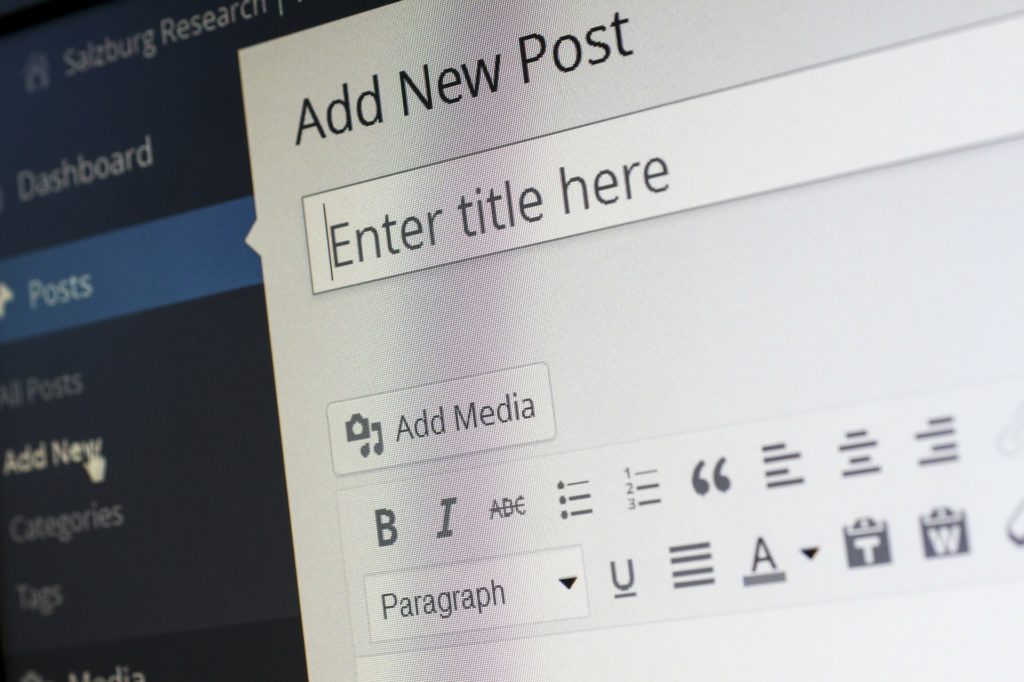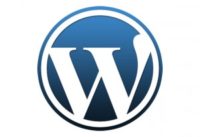
Broadcasters sometimes tell me that they are looking for a WordPress theme for their station’s website that was specifically designed with radio in mind. I’m never quite sure what they mean by this. Most of the radio-specific features that a station website needs aren’t part of the WordPress theme. An embedded audio player ought to be provided by the streaming provider; a concert listing can be built with an off-the-rack events plugin; and most of the other pages on the site can be built using WordPress’ core functionality and a handful of plugins.
One key radio-specific feature of a website should be the the way it handles contests, but that functionality is designed by the contest software provider, not the WordPress theme. As a radio broadcaster, I would definitely look for a contesting platform that understands the unique needs of radio stations; but a station’s WordPress theme does not require the same industry-specific customization.
In fact, most radio stations can easily get away with a more generic WordPress theme. Frankly, there is only one aspect of a WordPress website theme that I can think of which should be radio-specific: custom post types.
What are custom post types?
 A post type is simply a type of content. It may be easiest to think of a real-world analogy: A book is a type of content; a song is a type of content; a movie is a type of content. Each of these types of content have attributes they share — for example, all three have titles — as well as attributes that are unique to them — books have authors, songs have composers and singers, movies have actors and directors.
A post type is simply a type of content. It may be easiest to think of a real-world analogy: A book is a type of content; a song is a type of content; a movie is a type of content. Each of these types of content have attributes they share — for example, all three have titles — as well as attributes that are unique to them — books have authors, songs have composers and singers, movies have actors and directors.
Out of the box, WordPress comes with a few standard post types. You’re probably most familiar with Posts and Pages. These two types of content display differently on the front-end of the website: Posts include author bylines, publishing dates, and comments; Pages do not. Yet both Posts and Pages have titles, just like books and songs and movies.
(Note: In WordPress, the word “post” can be confusing because refers to both a specific type of content, as well as any type of content more broadly. I’ll capitalize “Posts” when referring to the specific type of content and use the lowercase when referring to content more broadly. In other words, a Page is one type of post, and a Post is another type of post, but a Page is not a Post.)
You are not limited to the post types that come with a standard installation of WordPress. One of the things that makes WordPress so powerful is that it allows you to create new content types. We’ll talk about why you might want to do that below.
What are custom fields?
In WordPress, we can create Custom Fields to hold data about different post types. To understand how this works, let’s return to our real-world analogy. If our content type is Movies, one custom field would be for the Director(s), another would be for the Screenwriter(s), and a third would be for Actors. Here’s how we might fill out the custom fields:
The Avengers: Endgame
- Director(s): Anthony Russo, Joe Russo
- Screenwriter(s): Christopher Markus, Stephen McFeely, Stan Lee
- Actors: Robert Downey Jr., Mark Ruffalo, Chris Evans, etc.
A different piece of content that is the same type — a Movie — would have the same custom fields, but those fields would be populated with different data:
Hustlers
- Director(s): Lorene Scafaria
- Screenwriter(s): Lorene Scafaria, Jessica Pressler
- Actors: Jennifer Lopez, Constance Wu, Julia Stiles, etc.
However, different types of content — such as songs or books — don’t use these same custom fields. Instead, they use different custom fields, such as “singer,” “composer,” or “author.”
WordPress allows you to create different custom post types, and then create custom fields that are attached to that post type.
Examples for Radio
This is wonderful in theory, but what custom post types and fields would a radio station actually use in practice? Here are are some examples of possible post types and their fields:
DJ Profile:
- Air Name
- Bio
- Photo
- Facebook Page
- Instagram Link
- Twitter Link
- TikTok Link
Interview:
- Host
- Guest
- Date Recorded
- Embed Code for Audio Player
- Description
Podcast Episode:
- Episode Titile
- Episode Description
- Episode Number
- Guest
- Topic
- Date Recorded
Promo Stop:
- Date
- Location
- Time
- DJ on Site
- Prizes
- Client
It’s possible that your station’s WordPress website is using custom post types already. For example, if you have a plugin that creates a concert listing on your website, that plugin may be creating a custom post type with custom fields like this:
Concerts:
- Performer
- Location
- Concert Date
- Link for Tickets
Why Should a Radio Station Use Custom Post Types?
Once you wrap your head around them, these custom post types are pretty neat. But they’re also a lot of work. Why should a radio station bother with them?
1. To control the way content is displayed on your website.
Custom post types give you a lot of control over how you display the data you collect. Recall the Posts post type that come sstandard with WordPress. On these, you can control how the author, date, and other fields are displayed. For example, you can make the title large and bold, the author small and italicized, and you can hide the date.
In a similar fashion, you can control the way you display the data for your custom post types. For the DJ Profile, you could display the DJ Name in bold, right-justify the photo, and use bullet points for each of the social media links.
2. To organize the content.
You can use custom post types to make it easy for listeners to find the content that they’re looking for on your website. For example, you could create an archive of your interviews that is in chronological order, but also create another archive that lists the episodes by the guests. This way, if a listener knows the guest of the interview they want to hear, but not the date of the interview, they can easily find it.
3. To ensure complete data entries.
If you’re using WordPress’ out-of-the-box posts to handle content instead of custom post types, you run the risk of omitting key information when there isn’t a custom field for that data point. For example, let’s say you use Posts to add promotional appearances to the website. There’s no custom field for the address of the promo stop, so you tell them intern who adds these to the website to include the address in the body of the Post. Except one day they forget, nobody shows up to your promo stop, and now you have an angry client.
Imagine you had instead created a custom post type called “Promo Stops,” with a required custom field called “Promo Stop Address.” Now the intern can’t leave that field blank when they create the Promo Stop for your website; they’ll get an error message reminding them to fill it in. As a result, dozens of people show up to your promotional appearance and you have a happy client.
4. To automate processes.
I love to automate digital processes to save time. Custom post types help me do this. On my WordPress website, I built a custom post type for my podcast episodes. Among the data I collect in the custom fields are “Guest Instagram Handle” and “Guest Twitter Handle.” I use these custom fields in conjunction with another plugin to automatically send share my episodes on social media and tag the guest in the post. A sample post to Twitter might read: “Check out who joined us on the podcast this week: @[Guest Twitter Handle]. Listen here: [Podcast Episode Link].” Using custom post types and custom fields saves me a lot of work.
Custom post types and custom fields are an advanced topic in WordPress. You’ll need a professional developer to help you implement them, and it helps if that developer understands the needs of radio stations. That’s why this is the one aspect of WordPress websites where it is advantageous to find a developer who specializes in radio stations. Hopefully, this crash course in custom post types will help you communicate with that developer to get what your station needs.
- A Simple Digital Treat to Thank Your Radio Listeners This Thanksgiving - November 13, 2023
- Interview Questions When Hiring Your Radio Station’s Next Digital Marketing Manager - November 6, 2023
- A Radio Conversation with ChatGPT: Part 2 – Promotions - October 30, 2023





Though I have an internet station does not mean I should have a basic copy and paste website. That said I’ve chosen WordPress and have looked at multiple “broadcast radio” templates and I want the ability to change as events happen or the station grows and does more. Recommendations or even a point in the right direction would be appreciated.
David,
You may want to find a theme that provides a framework. Normally, a theme “sits” directly on top of the WordPress core and provides the look of the site. A framework adds a second layer that lies between the core and the theme. This extra layer allows you to make changes to your site without coding. For example, if you like your theme, but decided you want to have two columns in the sidebar instead of one, you can make this change with a click of a button.
I’ve used Studiopress, which provides a framework called Genesis, for a number of my websites over the years. Studiopress is just one of many professional theme companies that use a framework.